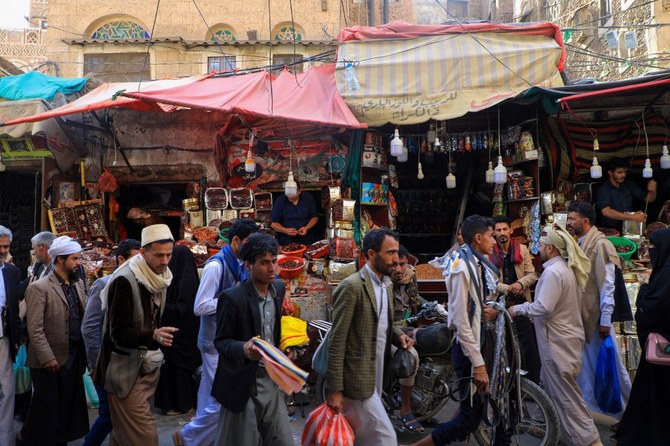
- ARAB NEWS
- 25 Apr 2024

Saeed Al-Batati
RIYADH: Hans Grundberg, the UN envoy to Yemen, said on Wednesday the current truce between warring factions has led to a rare significant reduction of hostilities, despite reports about the mobilization of forces and violations mainly around Marib.
“We have seen a significant reduction of violence. However, there are reports of some hostile military activities, particularly around Marib, which are of concern,” Grundberg said during a virtual press conference.
“We are currently setting up (a) coordination mechanism with the parties to maintain open channels of communication and help them prevent, de-escalate and manage incidents in support of their commitment to halt all offensive military operations and freeze their positions.”
The official said the UN is not monitoring the truce on the ground and has left the implementation to parties concerned, expressing hope that the truce would pave the way for achieving a comprehensive settlement to end the war in Yemen.
“We need to make the best possible use of the window this truce gives us to work toward ending the conflict. These two months will be a test of the parties’ commitment to reaching a peaceful resolution of the conflict that prioritizes the needs of the Yemeni people.”
The two-month-long ceasefire that took effect on April 2 was meant to stop hostilities across the country, opening Sanaa International Airport, allowing fuel ships into the port at Hodeidah and opening roads in Taiz and many other provinces.
Meanwhile, Yemen’s human rights groups and officials have demanded that international mediators order the Iran-backed Houthis to hand over maps that show the locations of hundreds of landmines across the country.
“The Houthis should be forced into submitting those maps, and the government and other organizations should help the country get rid of this plague,” Saleem Allawo, a lawyer and activist from Yemen’s National Organization for Defending Rights and Freedoms told Arab News on Wednesday.
Even before capturing Sanaa in late 2014, the Houthis planted hundreds of thousands of landmines across the country to block military advances by their opponents.
The landmines have killed and wounded thousands of people, ruined villages and farms, destroyed hundreds of vehicles and barred many displaced people from returning to their houses.
Military officials say the Houthis have randomly and intensively laid the landmines across former battlefields, and locating and defusing them might take years.
Allawo said that if the Houthis do not have maps, their fighters should be ordered to locate the landmines, demanding that demining teams quickly clean land affected to save the lives of displaced people who return to their homes during the truce.
Abdul Baset Al-Qaedi, undersecretary at Yemen’s Ministry of Information, told Arab News on Wednesday that the Houthis had planted landmines that look like rocks or other shapes to inflict maximum casualties.
“The biggest problem is that the Houthi militia plants mines indiscriminately and without maps, which doubles the losses,” Al-Qaedi said.
A report prepared by several Yemeni organizations released on Tuesday showed that landmines planted by the Houthis have killed 2,818 people, including 534 children and 177 women, and wounded 3,655 more, including 854 children and 255 women since 2014.
The biggest number of civilian deaths from landmines was recorded in Taiz where 549 died, followed by Hodeidah, 479, and Marib, 274.
The Yemeni Landmine Monitor said on Wednesday that at least 363 civilians have been killed by Houthi landmines and unexploded ordnances since January last year.